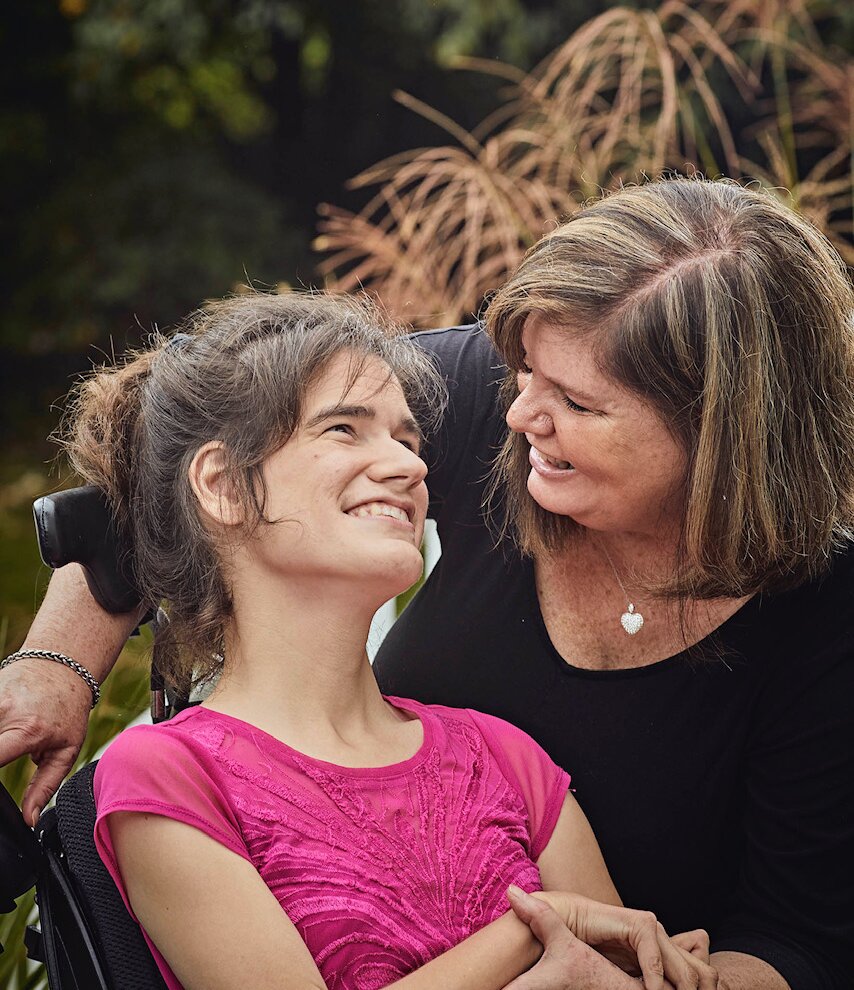Hancharick: Being disabled doesn’t mean death is better than life
Terri Hancharick is the chair of the State Council for Persons With Disabilities.
The disability community has thoroughly studied and vetted the effects of assisted suicide. It is a dangerous practice that is impossible to regulate and unfairly targets people with disabilities.
My 36-year-old daughter, Brigitte Hancharick, and I have testified multiple times before the Delaware legislature on this subject. Brigitte has quadriplegic cerebral palsy, profound cognitive disabilities, epilepsy, chronic pain and multiple other medical disabilities. I have been a disability rights activist for 36 years. This experience, along with the many studies and the evidence from states that have already passed such laws, has led me to oppose assisted suicide. I urge the Delaware legislature to also oppose this deadly bill (House Bill 140).
The National Council on Disability published a report Oct. 9, 2019, “The Danger of Assisted Suicide Laws,” that describes the dangers of assisted suicide laws for people living with disabilities. The council opposes assisted suicide, citing, among many deficiencies, ineffective “safeguards” that fail to protect patients. In addition to this groundbreaking report, many national disability rights groups oppose assisted suicide, including, but not limited to, American Disabled for Attendant Programs Today, the American Association of People With Disabilities, the Autistic Self Advocacy Network, the Disability Rights Education & Defense Fund, the National Council on Independent Living, TASH and The Arc.
The question then becomes, if these major disability groups oppose assisted suicide as a threat to the lives of disabled persons, why do elected officials still support it?
In a recent study regarding the state of Washington’s assisted suicide law, it could be interpreted that the state is deficient in its enforcement of the legal requirements of the law. This is based on the fact that, in 2021, less than 10 psychiatric evaluation forms were received. For opponents of the law, this is an important issue, as they believe — but don’t know based on such low reporting — that people who are using the law may well have treatable depression or a related mental health issue.
Delaware’s assisted suicide bill is based on legislation in Oregon, where assisted suicide was first legalized. Data from Oregon provides insight into the top reasons that patients ask for assisted suicide. The top five reasons that people gave were the loss of autonomy, being unable to participate in activities that make life enjoyable, loss of dignity, loss of bodily functions and becoming a burden on family, friends and caregivers. These reasons are all disability-related. Contrary to popular belief, pain does not even make it into the top reasons people give to justify their application for assisted suicide.
These disability-related concerns are similar to the concerns that my daughter and other Delawareans with disabilities face daily. Able-bodied people have a hard time accepting the prospect of becoming a person with a disability, which often requires you to develop dependencies on others. They are shocked by the loss of “dignity” that this dependency brings, and they believe premature death is preferable to such a fate. They decide to end their life because they fear the circumstances that they may experience.
These disability-related concerns are serious and deserve appropriate multidisciplinary care — but they are not worth seeking death as an alternative. Legalized assisted suicide devalues the life of my daughter and her peers, and it simply sends the wrong message to the disability community, that they are better off dead than disabled.
As written in testimony by the Autistic Self Advocacy Network, “When people are offered the option of suicide but not the option of affordable home care, they do not have any meaningful choice. People with significant disabilities due to illness should not have to die to have dignity.”
Because there are no safeguards against social and medical bigotry toward people with significant disabilities, assisted suicide is simply too dangerous — even with so-called “safeguards” in place.
Instead of institutionalizing death for the disability community, the Delaware legislature should focus on ensuring that everyone has the care and resources that they need. We must continue to advocate for reliable and competent care in the community. We must continue to advocate for full inclusion of people with disabilities. We must continue to lobby our elected officials for allocating the money needed to help provide for and empower people with disabilities.
Every day, the disability community fights to be seen and to be heard. Instead of enabling a pervasive, ableist mentality by legalizing assisted suicide, let us work toward a society where everyone has the opportunity to live a dignified life.
Please vote no to legalizing assisted suicide. The disability community deserves better.







